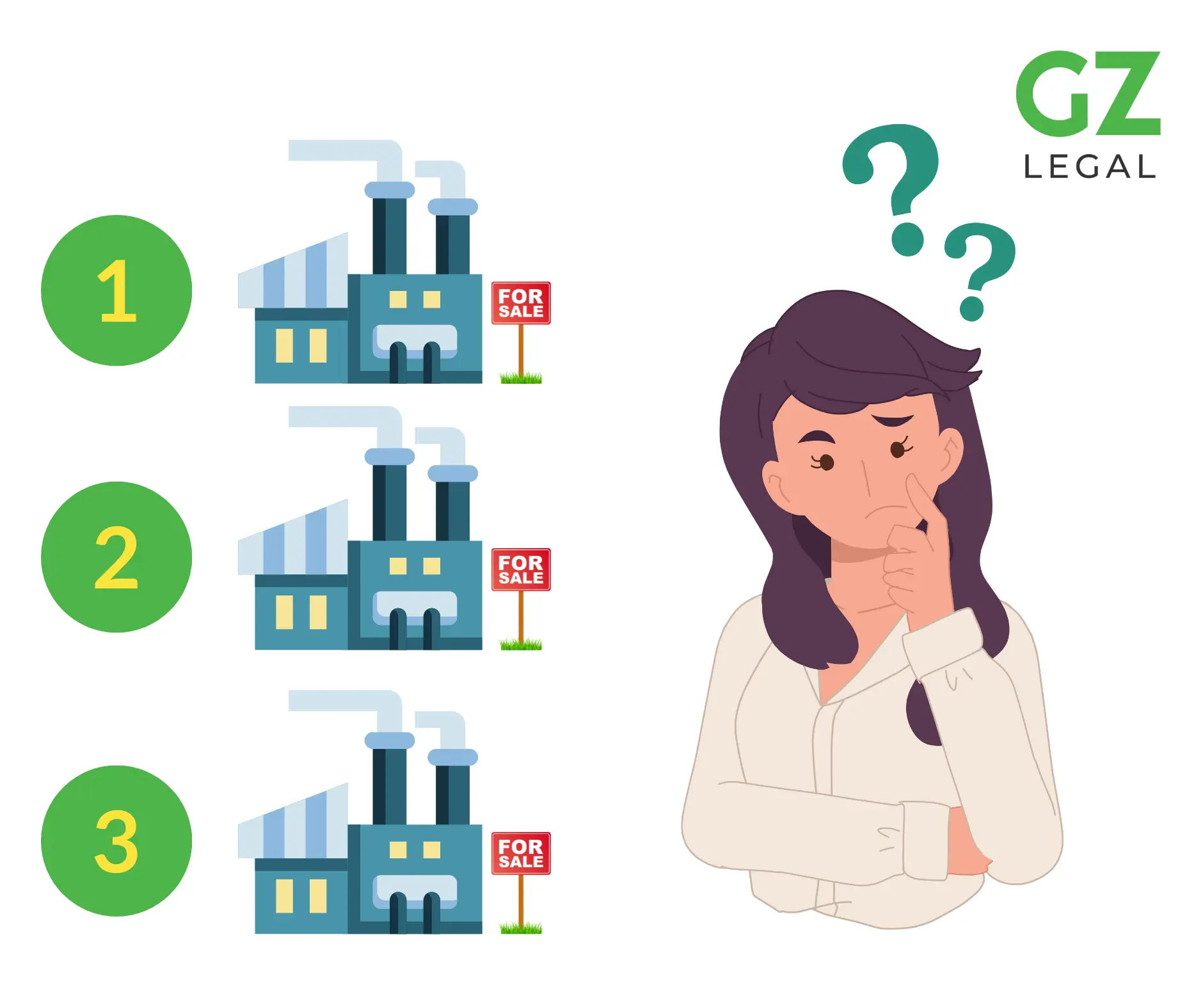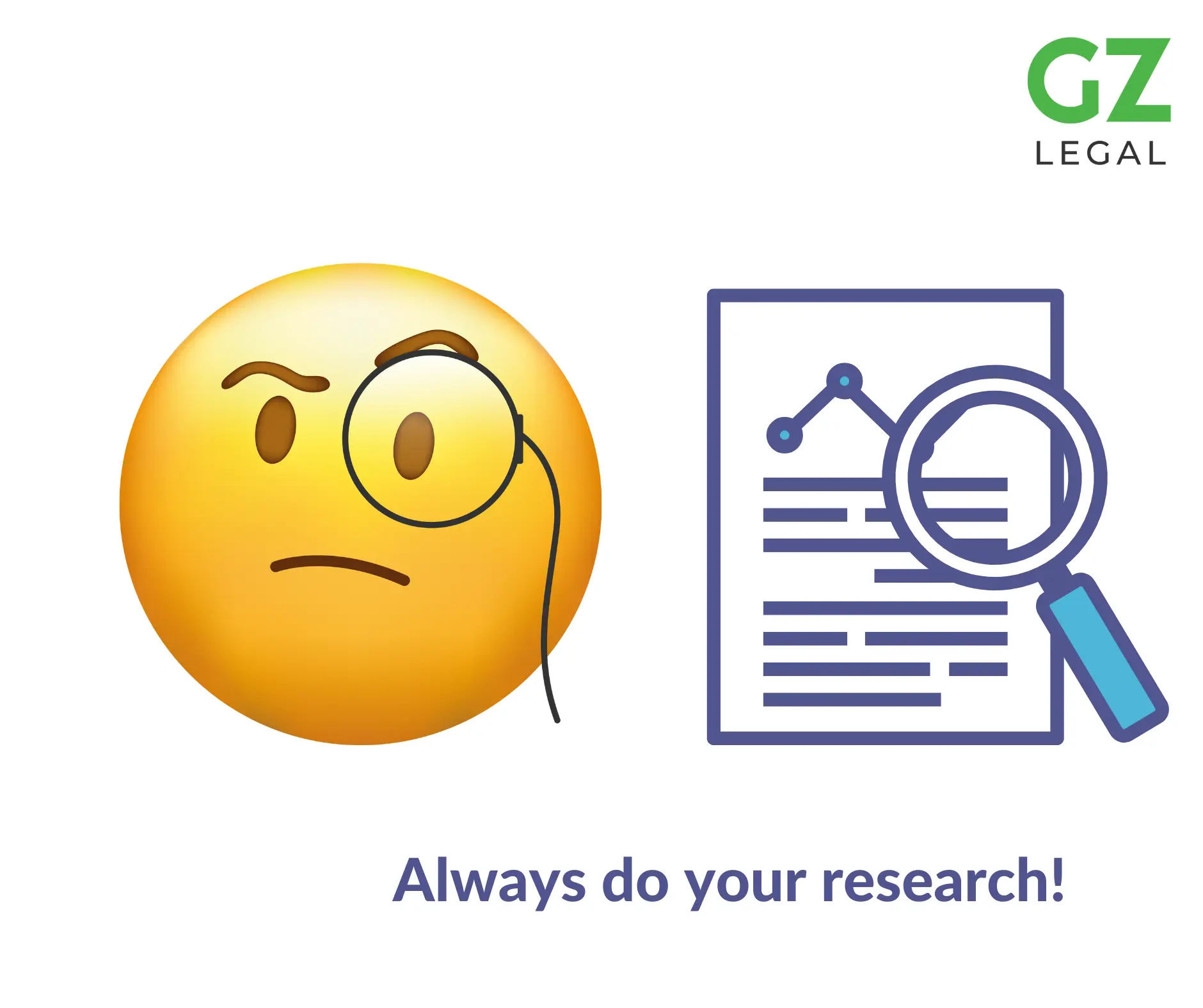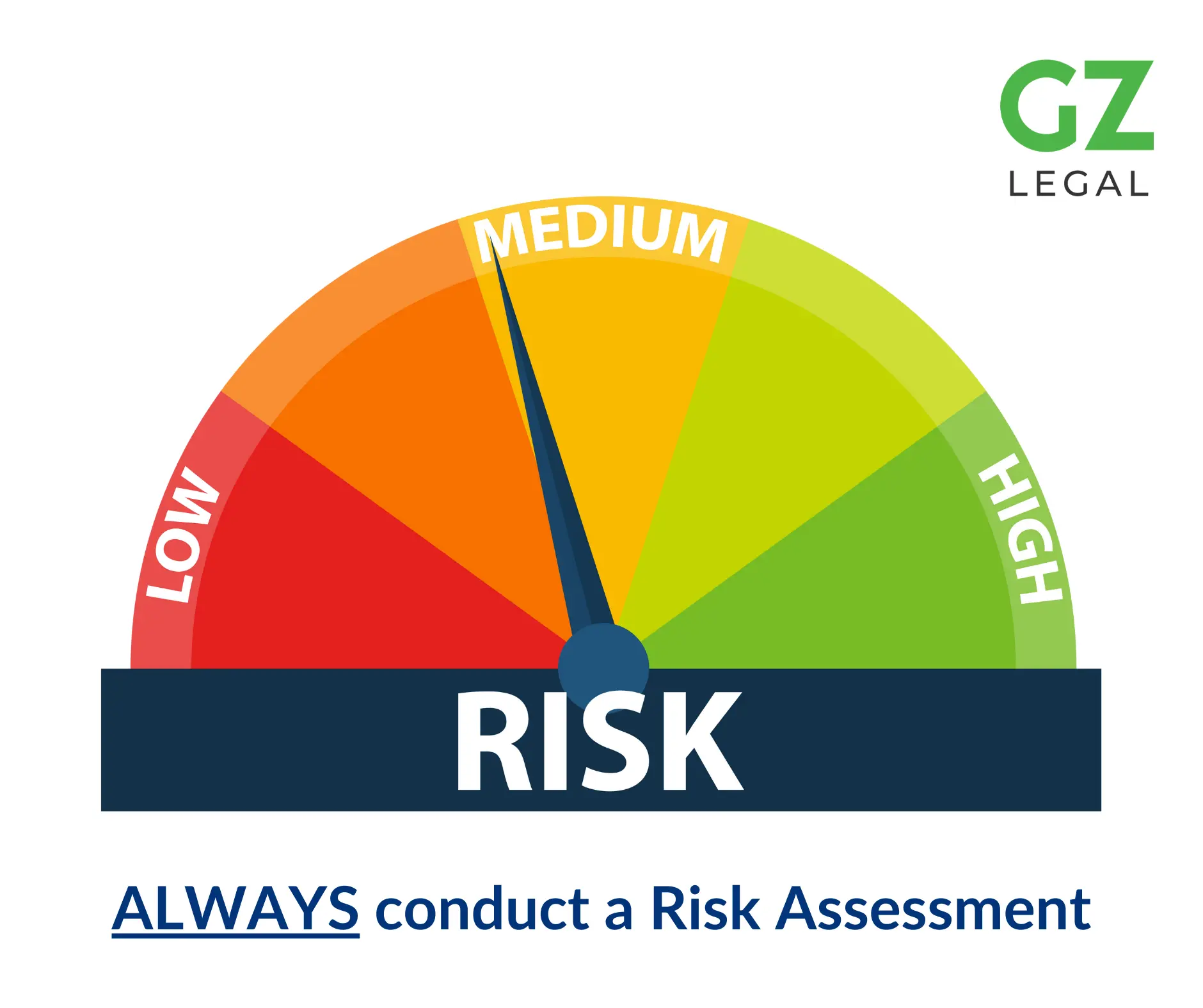Malcolm ZoppiSun Oct 15 2023
What Do You Need to Buy a Business UK?
Curious about buying a business in the UK? Read this blog to get up to speed on acquiring businesses.

Buying a business in the UK can be an exciting and rewarding venture, offering you the opportunity to take over an existing company with a proven product or service, a dedicated customer base, and valuable assets. However, it’s essential to approach the process with dedication and research to ensure your investment pays off.
Understanding the UK business market is the first step in acquiring a new venture. To do this, you’ll need to investigate the different types of businesses available for purchase and select a suitable option that aligns with your goals and expertise. From here, you’ll embark on a journey that involves business valuation, price negotiation, and various legal and financial considerations.
It’s crucial to cooperate with the existing business owner, conduct thorough due diligence, assess the people and assets involved in the business, and plan for success by identifying potential risks and challenges. With a clear strategy in place, you’ll be better equipped to make key findings and make informed decisions that enable you to navigate the business acquisition process successfully.
Key Takeaways
- Investigate the UK business market and select a suitable business to buy
- Conduct due diligence and engage in business valuation and price negotiation
- Assess the personnel, assets, and risks involved to plan for a successful acquisition
Understanding the UK Business Market
Before diving into the process of buying a business and risking your own personal assets, it’s vital to understand the market landscape. By comprehending the market and industry dynamics, you’ll be able to make well-informed decisions, better navigate potential challenges and identify the right business for you.
To start, research your target industry, focusing on the structure and performance of the sector, and record key findings. This will give you a comprehensive picture of the industry’s stability, growth potential, and opportunities for innovation. Analyse trends, strengths, weaknesses, and other factors influencing the industry.
Next, it’s essential to evaluate potential competitors within your chosen industry. Investigate the market share, competitive strategies, and strengths and weaknesses of at least two or three businesses already operating in the area. Identifying key players and their approaches will enable you to position your business effectively and gain an edge in the market.
Understanding business structures in the UK is crucial as well. There are various legal structures to choose from, such as sole proprietorships, partnerships, limited liability companies, and public limited companies. Each structure offers different levels of liability protection, tax implications, and regulatory requirements. When buying a business, take note of its existing structure and consider if any changes needed to align it with your goals.
In addition to these factors, be aware of the geographic aspects of the UK market. Consider location-specific regulations, local demand, and accessibility to suppliers or customers. Determining an ideal location for your business can make a significant impact on your success.
Lastly, keep up-to-date with relevant laws, regulations, and policies governing the UK business environment. Being knowledgeable about these guidelines will help you avoid legal issues and be better equipped to handle any compliance-related matters.
By conducting thorough research and understanding the UK business market, you will be better prepared to make a strategic investment and grow your business successfully.
Finding a Business to Buy
When you decide to buy your own business, the first step is to find a suitable one in your desired industry. You can begin your search by browsing online platforms or publications that list businesses for sale. Many websites offer listings of different types of businesses to suit different budgets and interests.
You may also consider engaging a business broker who specialises in the industry you are interested in. Business brokers can offer valuable insights, as they are experienced in matching buyers with potential businesses. They can also help you navigate the legal and financial aspects of purchasing a business.

Before you proceed with the buying process, it’s crucial to conduct thorough research on your chosen business. Analyse its financials, customer base, business trends, and market position to gauge its profitability and growth potential. You should also investigate any potential issues or risks that may affect the business, as well as considering the business model and management structure.
Additionally, you may want to examine the business’ reputation by reading customer reviews, talking to existing employees, conducting your own survey, or obtaining testimonials from industry peers in the same business sector. Make sure you are confident in the business’ potential and that it aligns with your personal and professional goals.
In conclusion, finding the right business to buy requires careful research, due diligence, and patience. Whether you choose to search independently or enlist the help of a knowledgeable business broker, be prepared to invest time and effort into the process to ensure the best possible outcome.
Business Valuation and Price Negotiation
When you’re planning to buy a business, it’s essential to have a clear understanding of the business valuation and price negotiation process. This will ensure that you get the best possible deal for your investment while also securing the long-term success of your new venture.
Business Valuation: First, you must determine the value of the business you’re interested in. This involves considering several factors such as the fair market value of tangible assets, historical financial performance, and potential future growth. To be confident and knowledgeable, familiarise yourself with relevant industry benchmarks, seek advice from industry experts, and consult a professional business valuation expert.
Price Negotiation: Once you have a clear idea of the business’s value, it’s time to begin the negotiation process. Don’t accept the asking price without negotiation, and open the negotiation at the lowest price you can. This price should be based on credible reasons, so make sure you’ve done thorough planning and research beforehand.
During the negotiation process, remember to maintain open communication and trust with the seller, as these are essential elements for a successful collaboration. Be prepared to compromise where necessary, as well as presenting well-supported arguments for your desired purchase price.
When negotiating the final purchase price, factor in the business’s profitability, as this will play a crucial role in your success and ability to achieve your desired return on investment.
Throughout the entire valuation and price negotiation process, maintain a neutral and clear tone, ensuring that your terms and conditions are unambiguous. This will not only make for a smoother negotiation process but also help secure a fair deal for all parties involved. By being confident and knowledgeable in your approach, you’ll set yourself up for long-term success when buying a business.
Financial Considerations
When you’re considering buying a business, it’s essential to have a clear understanding of your financial capabilities and the funding options available to you. First and foremost, know your budget. Assess the amount of capital you’re willing to invest and consider various financing options if you don’t plan to pay the lump sum in cash.
Research your financing options: As buying a business can be a significant capital investment, it’s crucial to research various sources of funding. Options can include bank loans, investors and government-backed schemes. Keep in mind that finance lenders will find profitable businesses more attractive, as they need confidence that the business can afford the repayments.
Understand the assets and liabilities: Before purchasing a business, examine its financial health by reviewing the business’s balance sheet, which will include its assets (such as property, equipment, inventory, and intangible assets) and liabilities (such as loans, debts, and long-term commitments). You should also review its accounts, cash flow, and financial statements to better understand how well it’s performing and whether it’s sustainable in the long term.
Establish the business’s valuation: A thorough valuation is vital to ensure you’re paying a fair price for the business. To determine its market value, consider factors such as its profitability, historical financial performance, assets, liabilities, cash flow, and future growth prospects. An accountant or financial advisor may be able to assist in this process.
Consider the loan repayment terms: If you require a loan to purchase the business, make sure you have a clear understanding of the loan’s terms and repayment schedule. Keep in mind that the business’s cash flow will need to cover not only the loan repayments but also your remuneration to support your livelihood.
To wrap up, taking into account all financial aspects of buying a business is crucial for its success. By performing thorough research on your budget, financing options, and the business’s financial health, you’ll be better prepared to make an informed decision and pave the way for a more successful business venture.
Legal Considerations
When you decide to buy a business, there are several legal considerations that you need to take into account. First and foremost, you should engage a solicitor who is experienced in the field to help you navigate the legal process.
One of the most important aspects of purchasing a business is dealing with contracts. In conducting this legal due diligence, you will need to review and negotiate various contracts, such as the share purchase agreement, the confidentiality agreement, and the heads of terms. It is essential to pay attention to indemnities, restrictive covenants, and the disclosure letter during this process.
Another key factor is intellectual property. Be sure to carry out a comprehensive assessment of the business’s patents, trademarks, and other intellectual property rights. Make certain that these rights are appropriately transferred to you, to avoid any issues in the future.
In order to protect sensitive information during negotiations, consider entering into a confidentiality agreement with the seller. This will prevent both parties from disclosing certain information to third parties and ensure that the negotiations remain confidential.
Before completing a formal offer for the transaction, you may need to sign a heads of agreement, which is a preliminary agreement outlining the main terms of the deal. This document can help provide clarity on the intended structure of the transaction.
Once you have agreed on the terms of the deal, exchange and completion of the transaction can take place. The completion agenda is an important document outlining the actions to be taken upon completion, such as registering new directors at Companies House and dealing with any outstanding legal matters.
Keep in mind that each business transaction is unique, and the legal considerations will depend on the specific circumstances of the business you are buying. By working closely with your solicitor and staying informed during each step of the process, you can better ensure a smooth transaction and successful acquisition.
Due Diligence Process
When you’re considering buying a business, conducting thorough due diligence is crucial for ensuring a successful transaction. Due diligence is a comprehensive appraisal of a business to establish its assets and liabilities, evaluate its commercial potential, and determine its current value.
Firstly, you should conduct research on the company or partnership you’re looking to acquire. This includes examining its financial documents and gaining an understanding of its operations. It’s essential to assess the financial stability and growth potential of the business to confirm its worthiness as an investment.
During the due diligence process, it’s also important to evaluate the risks associated with the business. Analyse the company’s track record, management structure, and employee relations. Understanding the competencies and capabilities of the team responsible for the business’s success can provide valuable insight.

Another critical aspect of due diligence is investigating the customer base. Identify the company’s major clients and the nature of their contracts. Determine the level of customer satisfaction, and consider potential opportunities for further growth and expansion. This process will help you understand how the business generates revenue and if its client list is sustainable for future success.
Finally, examine the existing contracts and agreements that the business has. This includes contracts with suppliers, partners, and employees. Ensure that these contracts are valid and enforceable and that no legal issues may hinder the business’s operations.
By carrying out an extensive due diligence process, you will be able to make a more informed decision on whether to proceed with the acquisition. This will help ensure that your investment is well-placed, and that you are taking on a business with a strong foundation for success.
People and Assets
When you’re considering buying a business in the UK, it’s crucial to evaluate the people and assets associated with the venture. Both of these components significantly impact the success and profitability of your newly acquired company.
As you assess the staff and employees, pay close attention to the existing workforce’s skills and experiences. It’s essential to retain key personnel who contribute to the overall smooth operation and growth of the business. Additionally, understanding the company culture and the quality of relationships between existing staff and employees can help you effectively manage staffing changes.
Another significant aspect to evaluate is the property and stock associated with the business. Make sure to properly examine the physical assets to ensure they’re in good condition and suitable for your needs. Review stock levels and verify their quality before committing to the purchase. Having a clear understanding of the assets you’re acquiring will prevent potential issues later on.
The goodwill of the business is an intangible, yet vital asset you should consider in your evaluation. Goodwill represents the business’s reputation, which influences its ability to maintain and attract customers. Analysing the company’s customer base can provide you with valuable insights into their loyalty and size, ultimately helping you gauge the potential value of the goodwill.
Lastly, don’t forget to examine the intellectual property tied to the business, including patents, trademarks, copyrights, and designs. These assets frequently hold a significant portion of the business value. Be sure to verify their legality and validity to safeguard your investment from potential infringement issues moving forward.
By carefully evaluating the people and assets involved in the business you’re interested in purchasing, you’ll be better prepared to make an informed decision and maximise your chances of success in your new venture.
Planning for Success
When considering buying a business, it’s vital to have a well-thought-out plan for ensuring your venture’s success. Start by evaluating the business model of the company you wish to acquire. Make sure it aligns with your strengths and capabilities, and assess its growth potential in the industry.
Investing in a business requires a significant financial commitment; thus, it’s crucial to ensure that the business is worth your investment. Analyse the profitability and financial stability of the company to get a clear understanding of its earnings and future prospects. It’s essential to be financially prepared and have a solid understanding of your own financial capability before the acquisition.
Knowing your strengths is vital when entering any business ownership, so take some time to assess what you bring to the table. Identify areas where your expertise and experience can contribute to the business’s growth and where you might need to invest in additional training or support.
A successful marketing plan is crucial for business growth, so make sure you understand the marketing strategy of the business you wish to acquire. Evaluate its effectiveness and determine if any changes or improvements are needed to maximise the business’s market presence and appeal to its target audience.
Creating or reviewing the existing business plan for the company you’re acquiring is an essential step in ensuring success. Make sure it includes a clear vision, goals, and growth strategies for the business and covers key aspects such as finance, operations, marketing, and human resources. Tweak the plan as needed to align it with your own vision of the business’s future.
By focusing on these aspects, you will be better equipped for a successful transition into business ownership. With diligent planning and a commitment to nurturing the business’s strengths and opportunities, you can position yourself to succeed in your new venture in the UK.
Risks and Challenges
When you’re considering buying a business, it’s crucial to be aware of the risks and challenges involved in the process. This section will provide you with valuable insights into some of these key areas.
Risk assessment is a vital part of making an informed decision about purchasing a business. You should evaluate the potential risks involved in the industry, such as market volatility, consumer demand changes, and competition. For example, opening a restaurant may offer higher returns but comes with more risks compared to investing in a laundrette. Weigh the pros and cons before making a choice.

One major concern in buying a business is liabilities. When you take over a company, you may also inherit its existing debts and obligations. Be sure to conduct thorough due diligence to identify any potential liabilities that could impact your investment. This includes understanding financial obligations to creditors, outstanding debts owed by debtors, and any litigation issues that could arise.
Warranties are essential in your business purchase agreement. Make sure to negotiate the scope and extent of warranties provided by the seller. These can cover aspects like the accuracy of financial statements, legal compliance, and any hidden issues that might come up post-acquisition.
Familiarise yourself with the company’s creditors and debtors. Review the accounts receivable and payable to ensure there are no significant outstanding debts or overdue payments. This will help you understand the financial health of the business and determine if it is a sound investment.
Always be on the lookout for any hidden problems that might not be apparent during the initial stages of the acquisition process. This can include contractual disputes, employee disputes, or other undisclosed issues that could impact the success of your business. Engage professionals like accountants and solicitors to perform thorough due diligence and uncover any potential issues before completing the deal.
Lastly, to ensure that you’re making a sound investment, take the time to research the market, analyse the company’s financial performance and assess factors such as the reputation and growth prospects of the business. Making a careful and calculated decision will help you maximise your returns on investment and mitigate potential challenges down the line.
Additional Notes on Acquisition
When considering a business acquisition in the UK, it’s essential to think about various factors that will contribute to a successful deal. You must bear in mind the deal structure, your interests, and the potential impact on the business name and any family members involved. Acquiring a business can be both an exciting and challenging venture, so it’s vital to seek professional advice as needed.
Firstly, determine the type of acquisition you want to pursue. There are two main options when buying a business: a share purchase or an asset purchase. In a share purchase, you buy the shares of the company that owns the business from its shareholders. In an asset purchase, you buy the assets that comprise the business. Both options have their advantages and disadvantages, so it’s essential to choose the structure that best aligns with your interests and goals.
When buying a business, ensure to evaluate the existing business name as it can immensely impact your future success. If the name has a strong reputation, it can work in your favour. However, if the name is tarnished, you may want to consider rebranding to protect your interests.
If family members are involved in the business you’re acquiring, consider their roles and how the acquisition will affect them. It’s crucial to have open discussions and set clear expectations from the outset. If necessary, seek guidance from a professional adviser to help you navigate any complexities that may arise.
In any acquisition, selling a business will require collaboration with a professional adviser, such as a lawyer or accountant. They can help you with valuations, negotiations, and due diligence, ensuring that the deal is both fair and in your best interests. Remember to involve these advisers early in the process to ensure a smoother transaction.
In conclusion, when looking to buy a business, keep these additional notes in mind to ensure your acquisition is successful. Be aware of the deal structure, your interests and personal assets, the business name, and any family members involved. Also, don’t hesitate to seek advice from professional advisers who can help you make informed decisions every step of the way.
Frequently Asked Questions
What legal matters should I consider when purchasing a UK business?
When purchasing a UK business, you need to consider various legal matters, such as the business structure, any existing contracts, licenses, permits, intellectual property, and employment law. Additionally, you need to consider the UK’s data protection and competition regulations. Consult with a solicitor to ensure that all legal requirements are met during the purchase process.
How can I finance a business purchase in the UK?
There are several ways to finance a business purchase in the UK. You could use your personal savings, borrow money from family or friends, or take out a bank loan. Another option is to seek investment from private investors, venture capitalists, seller financing, or business grants from government schemes. Research the different financing options available to you and carefully plan your business purchase according to your financial resources.
What is the process for buying a small business in the UK?
The process for buying a small business in the UK typically involves the following steps:
- Determine the type of business you want to buy and research the market.
- Set your budget and investigate financing options.
- Search for a suitable business using online listings or work with a business broker.
- Conduct due diligence to assess the financial and operational aspects of the business.
- Negotiate the terms of the purchase and prepare a legal agreement.
- Finalise the purchase by signing the legal agreement and transferring funds.
- Register the changes with relevant authorities and start operating your new business.
What due diligence should I perform before buying a business in the UK?
Before buying a business, it is crucial to perform due diligence. This involves reviewing the company’s financial records, tax returns, sales figures, inventory, supplier contracts, employee agreements, customer and client relationships, intellectual property, and other relevant details. Performing due diligence helps you identify potential risks and ensures that you are making an informed decision.
Can a non-UK resident own and operate a business in the United Kingdom?
Yes, a non-UK resident can own and operate a business in the United Kingdom. However, you must comply with specific regulations, such as immigration and visa requirements, tax obligations, and registering your business with Companies House or HMRC. Consulting with a solicitor and an accountant familiar with UK law can help guide you through the process.
What is the difference between buying a sole trader business and a limited company in the UK?
When buying a sole trader business in the UK, you are purchasing the individual’s business assets and liabilities, and you may be responsible for the former business owner’s debts. Sole trader businesses do not have separate legal identities from their owners.
On the other hand, when purchasing a limited company, you are buying the legal entity and its assets, liabilities, and shares. Limited companies have a legal identity distinct from their owners. As a result, the risk and liability for limited companies are limited to the extent of the shareholders’ investment in the company.
Remember to choose the business structure that aligns with your goals, risk tolerance, and long-term plans. Consulting with a solicitor and accountant can help guide you through the decision-making process.
Find out more!
If you want to read more in this subject area, you might find some of our other blogs interesting:
- Step-by-Step Guide on How to Transfer Shares to a Holding Company
- Breach of Settlement Agreement: Consequences and Remedies Explained
- Who Gets the Money When a Company is Sold?
- What is a Counter Offer in Contract Law? Explained Simply and Clearly
- Understanding the Costs: How Much Do Injunctions Cost in the UK?